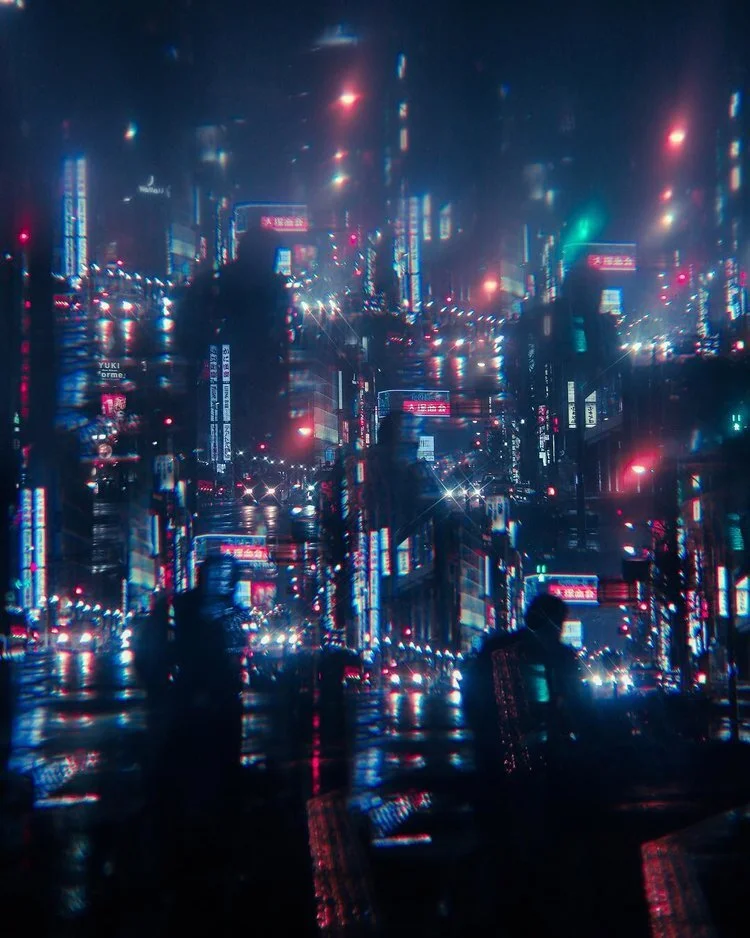Artist Interview: Stasia Matsumoto
Get to Know Artist Stasia Matsumoto!
Stasia Matsumoto is a Tokyo-based photographer. She has dedicated her time to both styling and kimono and tattoo related images as well as Tokyo’s urban and street scenes. You can find more of her work on Instagram at @Acchi_Kocchi and @inkimono.
Tell us a little bit about how you got into photography. How long have you been shooting?
I started doing street photography almost 3 years ago. I am a self-taught photographer. At first I didn't have much technical knowledge but I practiced, I experimented and was determined to improve. Photography was a form of therapy -- wandering the streets of Japan, checking out narrow alleys, exploring new areas, and sharing my discoveries helped me take my mind off things. Before I knew it, photography became a part of my everyday life.
Ignoring gear, how would you suggest becoming a photographer?
My main advice to anyone who wants to be a photographer is to find a subject they enjoy shooting most, a subject they find interesting. No matter how scenic and picturesque a landscape is — if it isn’t interesting in your eyes, you will struggle to capture it in a good way, satisfying to you as a photographer.
Have you ever used a film camera, do you see the value in learning the roots of the medium? Do you primarily shoot digital?
I shoot film as well. With film I am less selective about what I shoot, as, in my opinion, film makes even the most usual daily scenes look somewhat charming and special. Shooting film gives you a good perspective of what photography is and what photography can be. I would recommend any photographer to try it out!
What are some of your favorite commissions to date, and/or who would you love to work with?
I worked with Kirin Australia on their First Press project. I was one of the 6 Tokyo-based photographers they chose to participate. They chose photographers who mainly shoot digital — they gave each of us a film camera and asked us to take only one photo. We had only one chance to take a perfect shot, only one press (hence the name, First Press). I loved the experience and that opportunity definitely inspired me to give film a shot, to learn more about it.
Why did you choose to pursue a career as a photographer in Tokyo?
I like independence and freedom to create and pursue my own projects and ideas. Photography gives it all.
How important is it for a photographer to “connect” with their subjects to bring out their true self and perfect the image?
This is the most important thing in portrait photography! Many of my models / clients often apologize for being difficult to work with, even before we start shooting, as they don’t see what is special about them. That stops them from opening up to my camera. There is always something special about everyone! It might be their lovely smile, beautiful eyes, great posing despite no modelling experience etc and I make sure to tell them that. It usually gives them a lot of confidence in front of the camera and definitely makes it easier to take great portraits of them.
Model Marion
Do you find yourself always looking at the World wondering how it would look as a photograph?
I started as a street photographer and I think all street photographers do it. I often catch myself thinking ‘if I only had my camera with me right now…’ because I saw a great opportunity to capture something impactful.
Do you take photos more for yourself or others?
With street photography it is 50/50. I used to not publish any work that I wasn’t fully satisfied with, however recently I figured that some people might enjoy it, they might see it differently and it would be a shame not to share some photos only because they were not 100% perfect to me.
Locations and weather conditions seem to be a crucial aspect to a successful photo / video. How do you handle these unpredictable factors.
In my opinion, if something is beyond your control, you should just take it as it is and make the best use of it. Take it as a challenge, work with what you have and you will produce great images no matter the weather.
In what way can artists become agents of change? - Do you see this concept shine through in your work?
Photography is a very powerful tool. One image can change lives, bring light to what was remaining in the dark until now, start a dialogue and show what we do not, cannot or do not want to see. In case of street photography, you can discover an amazing place overlooked by others and encourage people to visit it. In case of portrait photography, you can tell stories of people who never get a chance or a platform to share them. You can also make a person feel beautiful, and that can be a huge change for them.
Tell us the story behind your @usernames!
I chose @acchi_kocchi when I first signed up to Instagram — I must add that I had absolutely no intention of becoming a photographer then. It means ‘here and there’ or ‘place to place’ in Japanese — at that time everything in Tokyo was new to me so I was just taking photos ‘here and there’. When I started my street photography adventure, this username still fit well so I kept it as it was. @inkimono also serves as a name for my small business. It is a mash up between the Japanese word ‘ninkimono’ which means something / someone popular and English ‘in kimono’.
Get Featured
Interested in sharing your story? Apply to have your work featured with your portfolio and a brief introduction via our Be a Contributor page. We'll look out for your email!
If you enjoyed this article, feel free to check out our YouTube Channel for tutorials, cinematic edits, and client projects!






